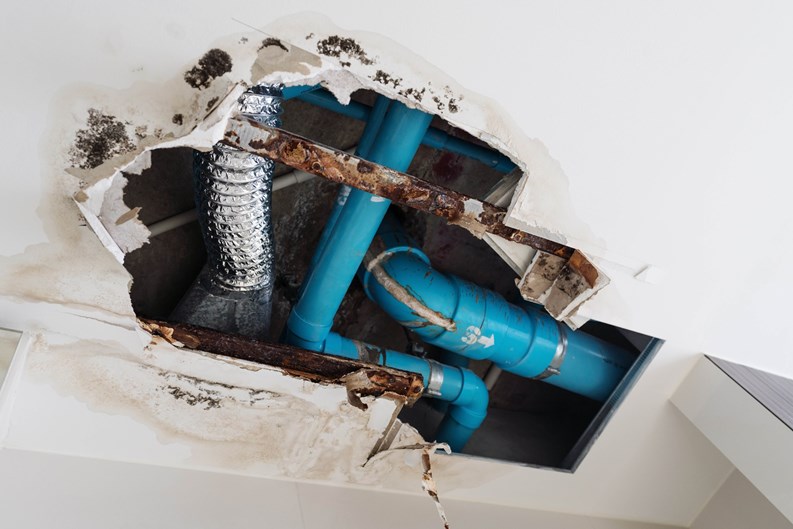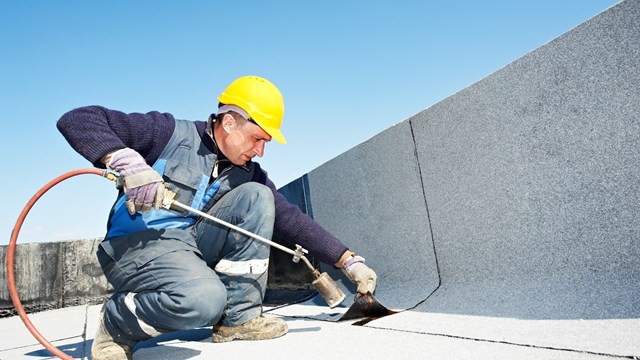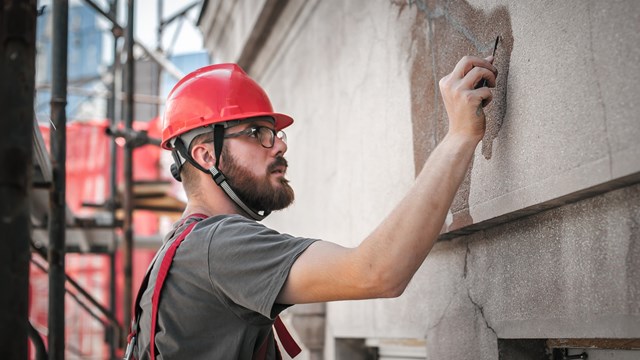Plumbing is a minor miracle: clean water, on demand, and at the temperature one chooses in his or her apartment. What would have been the height of luxury just a couple of generations ago is now considered a bare necessity. Miraculous as it is, however, the system of pipes via which H2O travels from its origin to the taps in a condo or co-op unit is not without flaw. Leaks can and do happen, and a resident unprepared to identify and deal with that situation risks more than their own cabinets, walls or furniture. In communal living, untreated leaks can quickly spread and cause serious damage to the entire property. As such, it’s imperative that everyone involved knows how to identify and react when their unit may be taking on unwanted water. A professional plumber can certainly help with the situation, but the more promptly the problem is noticed and acted upon, the more efficient their response will be.
Season’s Greetings
While leaks can present themselves at any time, they’re most likely to happen in early spring, right after the winter thaws.
“After severe winter weather, you should definitely check all of your piping,” advises Philip Kraus, President and CEO of Fred Smith Plumbing & Heating Company in New York City. “If you’re an apartment owner, you should go through your space a few times each week to ensure that your faucets are working. It’s important, because you can have a problem of which you’re unaware, so at least make sure your plumbing fixtures are working and operable. And you can inspect further as well. If there’s water on the floor, where’s that coming from? Is the ceiling damp? What’s the source? And these aren’t things that you should examine only after a severe winter. You should check plumbing fixtures year-round. Look for discoloration in wallpaper — anything unusual. Damage under a sink. Discolored tile. Mildew. Odors. Don’t just tell yourself, ‘That’s the way it is,’ as it may not be the way it should be. It may well be a problem — so look into it.”
The potential for — and symptoms of — leaks in a condo unit are location-dependent. “If you’re considering unit-to-unit leaks, folks who live in ground-level garden apartments are most susceptible, not only from trickle-down, but from water infiltration stemming from outdoors,” warns Fred Webster Jr., Owner of Milltown Plumbing in Chelmsford, Massachusetts. “And the most common time of year to find a leak is usually the spring, or after a thaw, for a couple of reasons. For starters, people get ice damage, but also in ground-level units. If the downspouts aren’t sending water away from the building, either due to snow, [or] if there were extensions that were knocked off during the winter, those folks usually get water infiltration first. We get a lot of calls in the spring from people who think they have plumbing issues, when it’s really just downspout or water runoff issues from heavy rain. Or maybe there’s a failed sump pump in the building that is greatly affecting these folks.”
“If pipes are exposed, they could thaw in the spring. But if they’re installed correctly in a condo building, they shouldn’t be exposed to freezing,” adds John Mannerino, Senior Service Manager with R. Carrozza Plumbing Company in Franklin Park, Illinois. “You should look at hose bibs — check to see that the hose has been disconnected from the bib because if it’s not, it will freeze and break. But if it’s maintained properly, you shouldn’t have any issues regardless of the season.”
Looking for Leaking
Some leaks are easy to spot, while others are sneakier. It’s important for a homeowner to know the telltale signs of water damage to prevent an otherwise minor problem from quickly spiraling out of control.
“Regarding unit-to-unit leaks, it’s important to be a good neighbor,” says Webster. “If you have somebody living above you, and there’s water on the ceiling above your toilet, it’s likely that they have a toilet in the same exact location upstairs, and it may be leaking. Being an upstanding member of your community in that instance is paramount, because what happens in your unit can affect a lot of other folks.”
This also applies to leaks behind walls, which can be harder to identify. “Your downstairs neighbor would likely be the one to find out about it,” notes Kraus. “Many times it’s not the shareholder’s piping; maybe it’s the main building lines inside the wall that have the problem. But the only way you’d know that is if the person downstairs has been paying attention. There could be a leak going on slowly down to the apartment below for months, and nobody says anything.”
“If the leak is in the wall, it’s going to show up somewhere,” adds Mannerino. “Most of the time, leaks are going to show up in the unit down below, either via discoloration in the ceiling or bubbling in the drywall, which illustrates moisture. Or if you see any mold or mildew in plumbing walls.”
Calling in the Pros
Even experienced tinkerers can find themselves in over their heads trying to deal with plumbing issues. It’s important to remember that attempting to fix a leak on their own not only puts the resident’s own unit at risk, but those of their neighbors as well. Because of this, it’s usually better to err on the side of caution and call in an experienced plumber to deal with any problems, rather than trying to do it yourself.
“I suggest that people do not touch their own plumbing in a condo building,” warns Mannerino. “There are a lot of factors that go into it, and bad things can happen really fast. They start changing the faucet, and the next thing you know the water is leaking and there’s no way to turn it off, and now you’re flooding the units below you. I always suggest to condo associations to prohibit anyone from attempting do-it-yourself fixes unless they’re a licensed plumber. I’ve had people put on hand-held showerheads that have small valves to shut off the water, and they leave the faucet on, crossing hot and cold water in the building, which screws up the water piping — all because somebody doesn’t know what they’re doing.”
Webster agrees, adding that residents, managers, and building staff should put a call in to their plumbing pro “within minutes” of discovering a leak, unless they’re absolutely certain they know the origin of it, and it’s a very easy fix. “If it’s a water line leak, it could get worse,” says Webster, “and it’s hard enough to trace hidden leaks in buildings with the leak-detection equipment that we have, like infrared cameras. If it’s complicated to find them when you have the proper training and the tools, imagine what that means for the untrained person. Water can show up far from its origin, so if you don’t see something leaking upstairs, someone without training can lead themselves on a wild goose chase, traipsing around multiple units before identifying an origin.”
At the very least, a unit owner should notify the superintendent as soon as he or she finds water damage, recommends Kraus. “If you have an issue, call the super, and it will either be something that they can take care of, or they’ll recommend that you call a plumber. But it should be discussed with the super or the handyman, whomever is tasked with looking into these things at the property. I wouldn’t try to fix my own car, or my phone. You shouldn’t take it upon yourself to make these decisions. You might just make it worse.”
Mike Odenthal is a staff writer/reporter for New England Condominium.







Leave a Comment